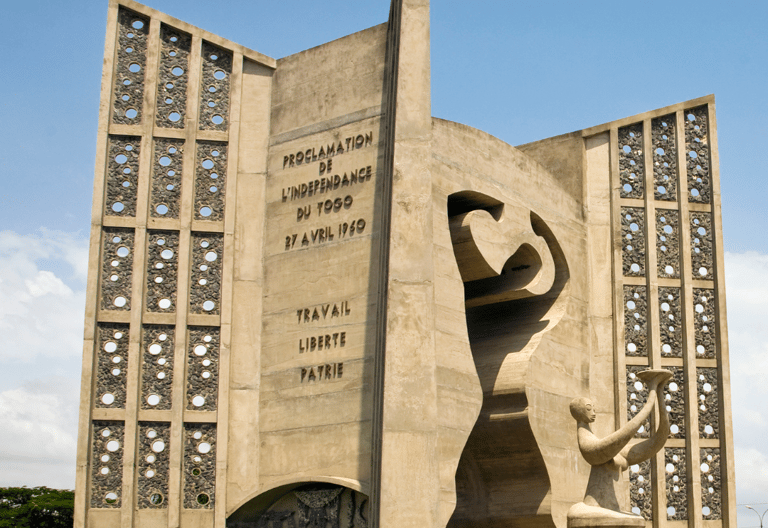
TOGO
WELCOME TO TOGO
Allow us at SLL Journeys to craft an unforgettable journey of Togo for you. Togo is an incredible country with kind people and a colorful culture.
Be mesmerized by the Akodessewa Voodoo market of Lomé to the serene landscapes of Kpalimé, the preserved culture and architecture of the Batammariba tribe.
Togo indeed offers an emotional connection to the authenticity of West Africa that will captivate every cultural connoisseur.
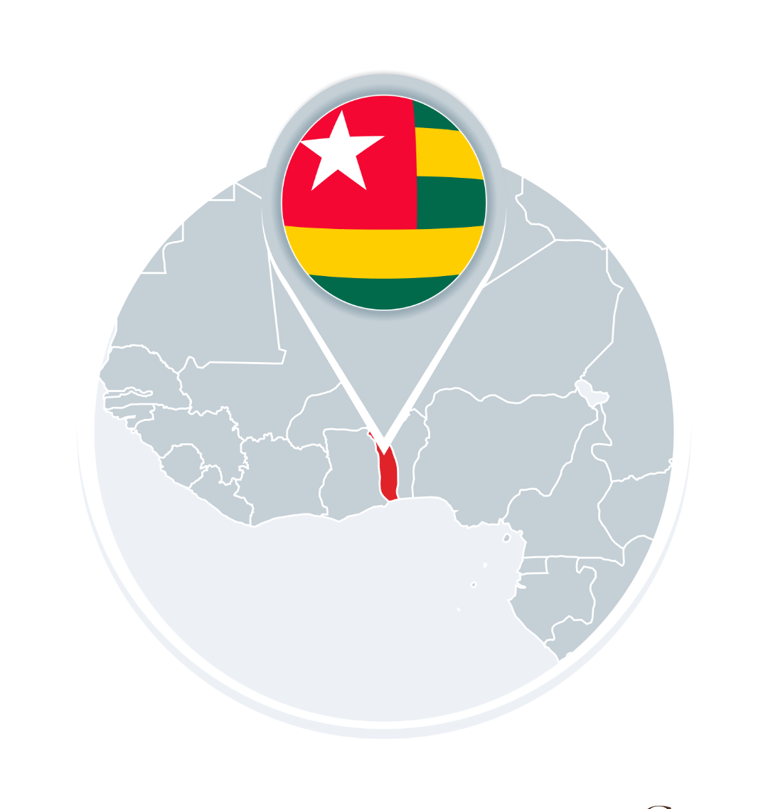


HISTORY
Togo's history is a convergence of diverse influences and zestful traditions. Before European colonization, the region was home to various ethnic groups, including the Ewe, Mina, and Kabye.
In the late 19th century, Togo became a German protectorate, and later, after World War I, it was divided between the British and the French. The French-administered territory gained independence on April 27, 1960, becoming the Republic of Togo.
The country's post-independence history has seen periods of political turbulence, but Togo has steadily progressed towards stability and development.
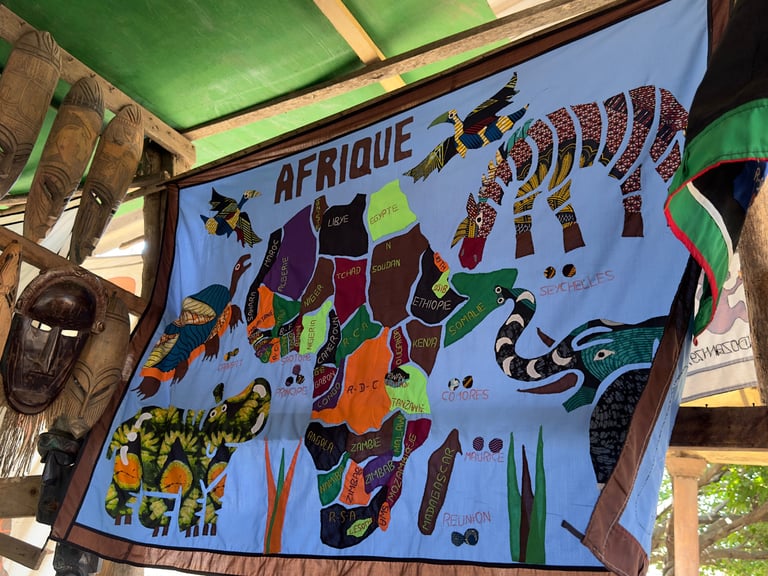

CULTURE
Togo's cultural landscape is incredibly diverse, with over 40 ethnic groups, each contributing to the country's traditions and customs.
The Ewe, Kabye, and Mina are among the largest ethnic groups, each with their own languages, dances, music, and festivals. Togolese culture is deeply rooted in oral traditions, vibrant ceremonies, and artistic expressions.
Voodoo plays a significant role in Togo's spiritual life, particularly among the Ewe and Mina people. This ancient religion is characterized by its belief in a pantheon of deities, ancestral spirits, and the power of rituals and ceremonies.
Voodoo practices involve music, dance, drumming, and the use of symbolic objects to convey messages from the gods.

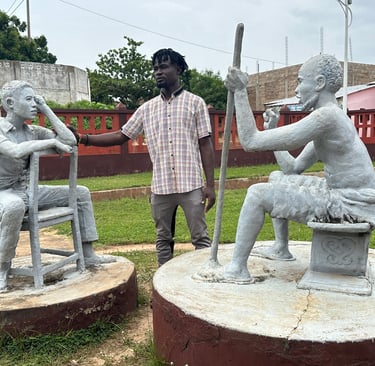
The Nok Caves, located in the northern part of Togo, are a significant archaeological site featuring ancient rock shelters and cave paintings that provide insights into the early human inhabitants of the region. These caves are a reminder of the rich prehistoric culture of Togo. Additionally, the Batammariba people, also known as the Tamberma, are renowned for their unique mud tower houses, called "takienta," found in the Koutammakou area. This UNESCO World Heritage site showcases the remarkable architectural skills and cultural heritage of the Batammariba tribes.
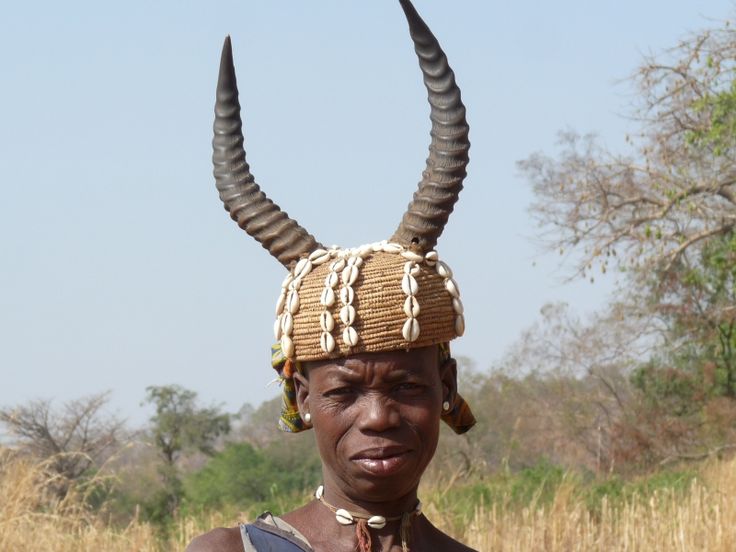

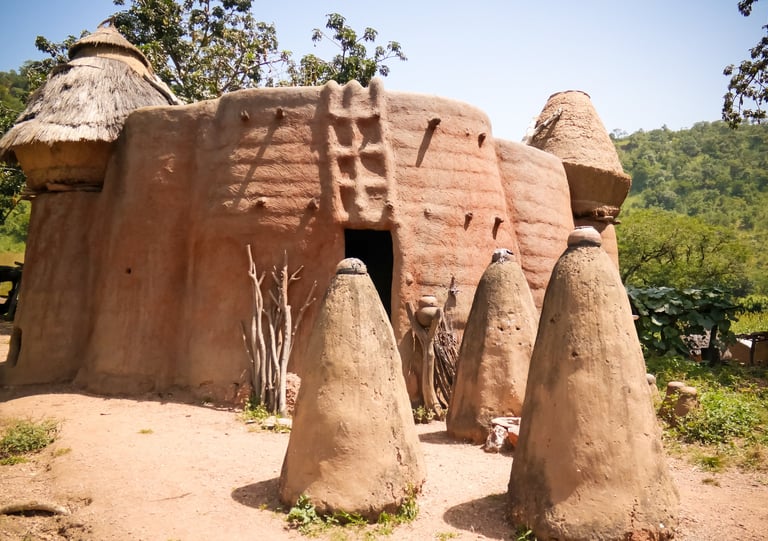

SAMPLE ITINERARIES
Discovering Voodoo: Togo & Benin

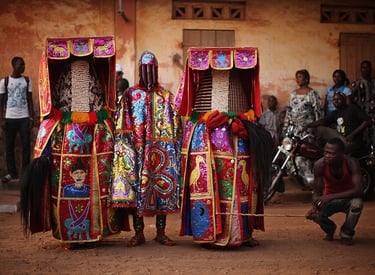
Ghana & Togo: Culture and Adventure Unveiled
Coming Soon...
Coming Soon...
Language: The official language of Togo is French. However, many Togolese also speak indigenous languages such as Ewe and Kabye. English is not widely spoken, so learning a few basic French phrases can be very helpful.
Currency: The official currency of Togo is the West African CFA franc (XOF). The CFA franc is used by several countries in the West African Economic and Monetary Union. It is advisable to carry small denominations of currency for everyday transactions, as larger notes can be difficult to change in rural areas. ATMs are available in major cities, and credit cards are accepted in some hotels and restaurants, but cash is often preferred. You can use the currency calculator here.
Climate: Togo has a tropical climate, with a wet season from April to October and a dry season from November to March. The coastal regions experience less rainfall compared to the northern areas. Lightweight, breathable clothing is recommended.
Health: It is recommended to get vaccinations for yellow fever, hepatitis A and B. Malaria is prevalent, so taking antimalarial medication and using insect repellent is advisable. We advise that you avoid drinking tap water and opt for bottled water.
Safety: Togo is generally safe for tourists, but it is important to stay informed about the local situation and follow the advice of local authorities. Avoid traveling alone at night and be cautious in crowded areas to prevent petty theft.
Cuisine: Togolese cuisine is a delightful blend of flavors, influenced by African, French, and Portuguese culinary traditions. Staples include maize, millet, and cassava, often served with a variety of sauces and stews. Be sure to try local dishes such as fufu, pâte, and grilled fish, as well as street food delicacies like akara (bean cakes) and ablo (steamed corn cakes).
Transport: Transportation in Togo includes taxis, buses, and motorcycle taxis (zemidjans). Taxis are widely available in cities and are a convenient mode of transport. For intercity travel, buses and minibuses are common, though they may not always adhere to strict schedules. Roads in urban areas are generally good, but rural roads can be challenging.
Etiquette: Togolese people are known for their hospitality and respect for traditions. Greetings are important, and it is customary to shake hands when meeting someone. Dress modestly, especially when visiting rural areas or attending religious ceremonies. Avoid pointing with your finger and use your right hand when giving or receiving items, as the left hand is considered impolite.
Passport and Visa: Visitors to Togo must have a valid passport. Visas are required for most travelers and can be obtained from Togolese embassies or consulates before arrival. Some nationalities can obtain a visa on arrival at Lomé-Tokoin Airport. It is advisable to check the latest visa requirements and regulations before traveling. Check if you require a visa here.
IMPORTANT THINGS TO KNOW

DISCOVER MORE
Need more information on specific packages and services?
Share your contact information and a dedicated Guest Experience Director will get in touch within 24 hours.

